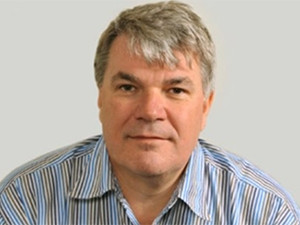
Metrofibre Networx, a local open access fibre network and broadband fibre provider, has entered into a partnership with Link Africa, which will see the company replace all its fibre links for its core network over the next two years with its own fibre infrastructure.
Until now, Metrofibre has leased the fibre links for its core networks; however, due to the high volumes and demand being experienced by the company, it has taken a strategic decision to replace the links and roll out its own fibre in a co-build agreement with Link Africa.
The project will kick off in April 2016 and is expected to take two years to replace all Metrofibre's current leased fibre infrastructure with two major routes being completed in this calendar year.
"When Metrofibre first started, we leased our fibre infrastructure from a fibre service provider; however, it was always our intention to eventually roll out and own our own fibre infrastructure," says Steve Booysen, CEO of Metrofibre Networx.
"Now with the expansion of our network, our growing footprint in the FTTH arena, and our need to scale more rapidly to better service our clients, we have taken the decision to fast-track the rollout of our own fibre infrastructure."
The company will leverage its existing partnership with Link Africa, an open access layer one fibre provider, through a co-build agreement where the parties will share the costs of shared routes; however, both will independently own the fibre they place along it.
According to Booysen, Metrofibre selected Link Africa as its partner because of the cost-effective patented technologies it uses to lay fibre. This includes technology whereby it can leverage "real estate" in storm water drains and sewerage pipes wherever possible - cutting costs of traditional trenching down to a minimum.
"Link Africa is excited to enter into co-build and swap agreements with Metrofibre Networx and views this as one way of reducing deployment costs. We believe the project will ultimately benefit the end-users," says Terence Moodley, CEO of Link Africa.
Metrofibre says by deploying its own fibre, it will not only be able to expand and increase its own network coverage, but will also gain the capacity to serve more customers by providing new and existing customers with a wider coverage area.
The Metrofibre core network in Gauteng currently comprises approximately 250km of fibre routes and connects nodes in all the main data centres, including Teraco, Hetzner, JINX/IS, Vodacom, MTN and Neotel, among others.
Booysen adds the project will follow a phased approach, where in 2016 the first phase will see it replace a number of leased links in Midrand, and the second phase also scheduled for completion in 2016, will replace the leased fibre in its northern network ring running through Centurion.
"By owning our own fibre infrastructure and nodes, we will be able to deliver reliable and cost-effective services, as well as provide better access to our FTTH rollout programmes and our corporate customers, by giving us the flexibility we need when scaling up our network capacity," ends Booysen.
Share